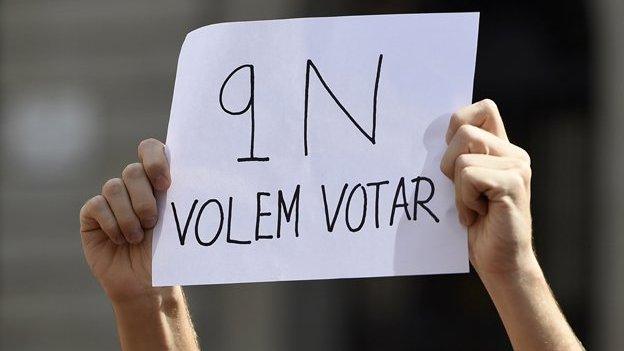Catalonia vote: 80% back independence - officials
- Published
- comments
Fernando Sanchez Costa, Catalan MP: "It was an illegal referendum"
An informal vote on independence for Catalonia has shown more than 80% in favour, officials say.
The non-binding vote went ahead after Spain's constitutional court ruled out holding a formal referendum in the autonomous north-eastern region.
More than two million people out of an estimated 5.4 million eligible voters took part in the ballot.
Catalan leader Artur Mas hailed the poll "a great success" that should pave the way for a formal referendum.
"We have earned the right to a referendum," he told cheering supporters.
"Once again Catalonia has shown that it wants to rule itself."
Patrick Jackson reports from a polling station in Catalonia
He added: "I ask the people in the world, I ask the media and I also ask the democratic governments in the world to help the Catalan people decide its political future."
The ballot was held in the face of fierce opposition from the Spanish government.
Spanish Justice Minister Rafael Catala dismissed the exercise as "a sterile and useless sham" that only served to exacerbate the divisions between Catalans and heighten political tensions.
He accused Artur Mas of pushing ahead with the 9 November vote to "hide his failure" in holding a proper referendum.
"The government considers this to be a day of political propaganda organised by pro-independence forces and devoid of any kind of democratic validity," he said in a statement.
Spanish opposition Socialist leader Pedro Sanchez was more conciliatory. He said 10 November should herald a new era, when Catalonia was not outside Spain but "at the vanguard of change" that would lead to a federal Spain.
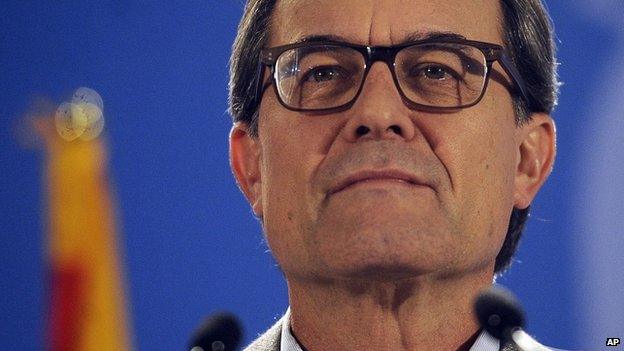
Catalonia's regional president Artur Mas says an official referendum is needed
Voters were asked two questions - whether they wanted Catalonia to be a state and whether they wanted that state to be independent.
Officials said 2,236, 806 people had taken part in the "consultation of citizens" and that with almost all votes counted, 80.72% had answered yes to both questions.
Just over 10% voted yes for the first question and no for the second, he said, and about 4.5% voted no to both questions.
Opinion polls suggest that as many as 80% of Catalans want an official referendum on the issue of Catalonia's status, with about 50% in favour of full independence.
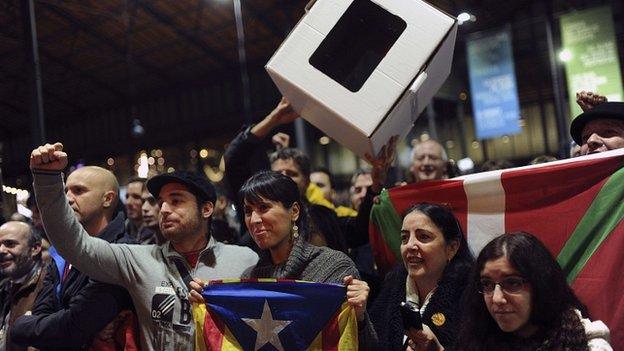
Catalan pro-independence activists waved a cardboard ballot box at a rally in Barcelona
Spanish unionist parties argue that because the ballot was organised by grassroots pro-independence groups it cannot legitimately reflect the wishes of the region.
More than 40,000 volunteers helped to set up and run the informal exercise.

Santa Coloma: Divided community
Catalonia's dream of independence from Spain collides with some harsh realities on the streets of Santa Coloma, a dormitory town on the northern edge of Barcelona.
Catalonia vote: The mayor who opposes independence
Santa Coloma's energetic young mayor Nuria Parlon is firmly opposed to independence. Independence, she argues, is a "placebo" which would not solve Catalonia's underlying problems.

The Catalan National Assembly pressure group collected signatures at polling stations on a petition to be sent to the UN and the European Commission asking for help to convince Spain to allow an official referendum.
Nationalism in Catalonia has been fuelled by economic and cultural grievances. The wealthy region of 7.5 million people contributes more to the Spanish economy than it gets back through central government funds.
Pep Guardiola say he voted because "we want to decide our future"
The Libres e Iguales (Free and Equal) group, which opposes the vote, held protests in dozens of cities.
One protest in Barcelona witnessed minor scuffles but no arrests.
Other rallies in favour of the vote were also held.
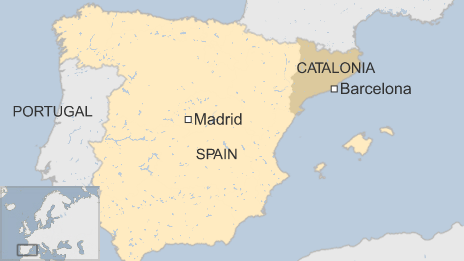
- Published9 November 2014
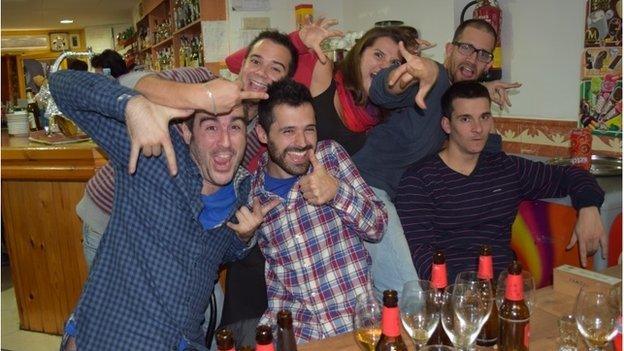
- Published9 November 2014
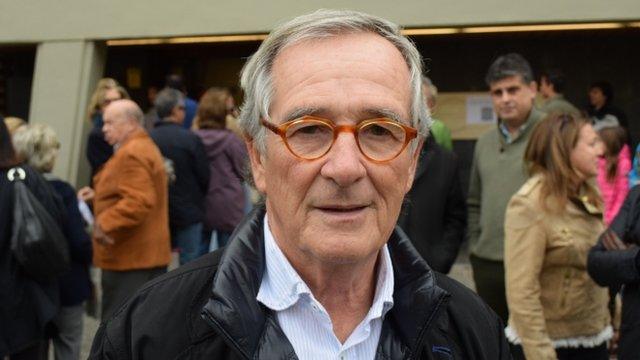
- Published7 November 2014
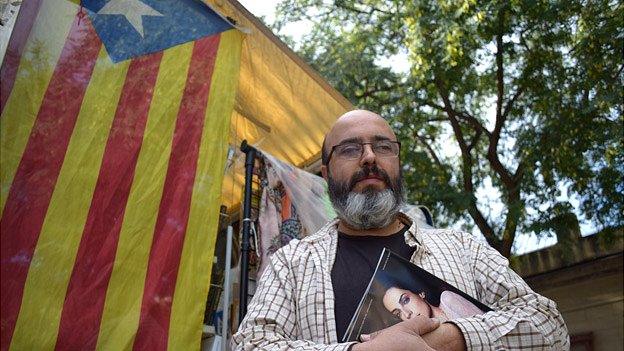
- Published18 October 2019
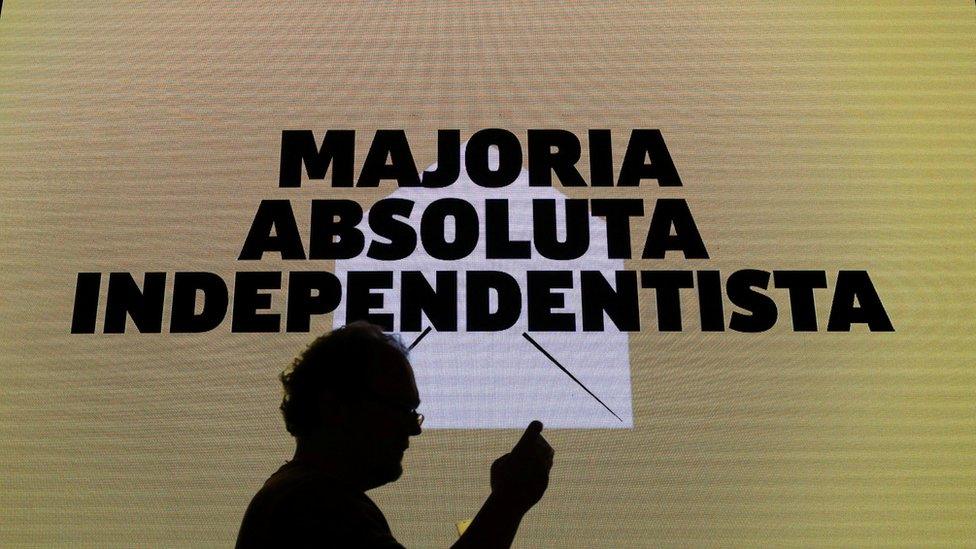
- Published8 November 2014
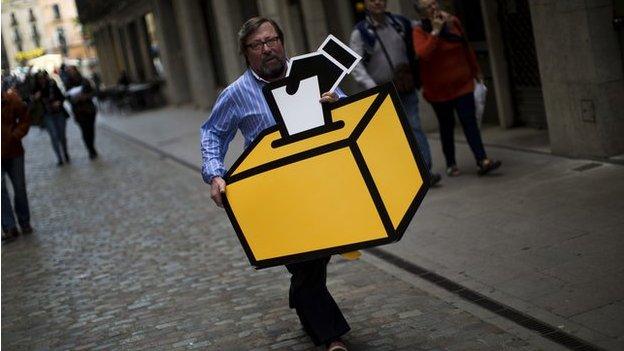
- Published6 November 2014
